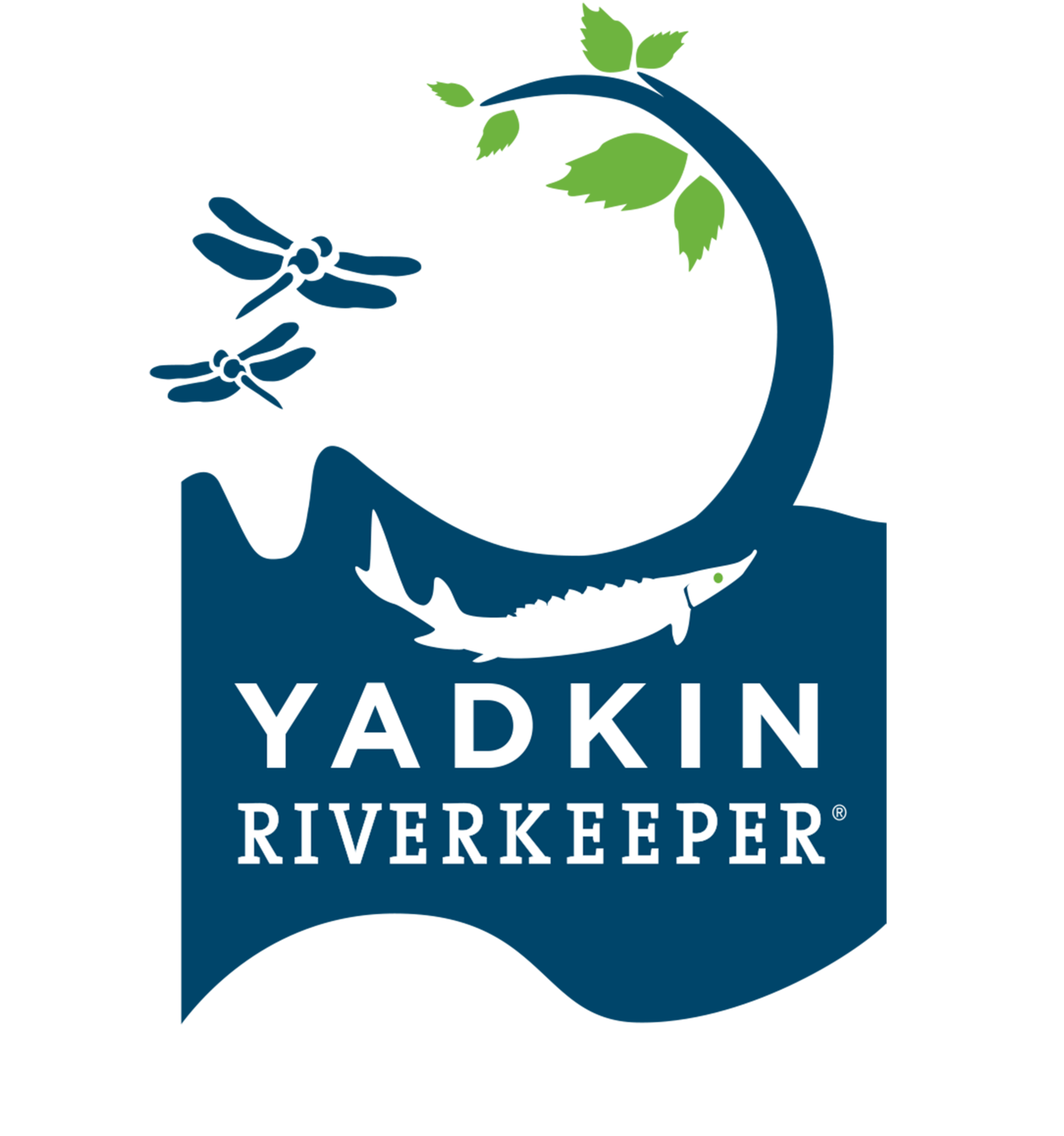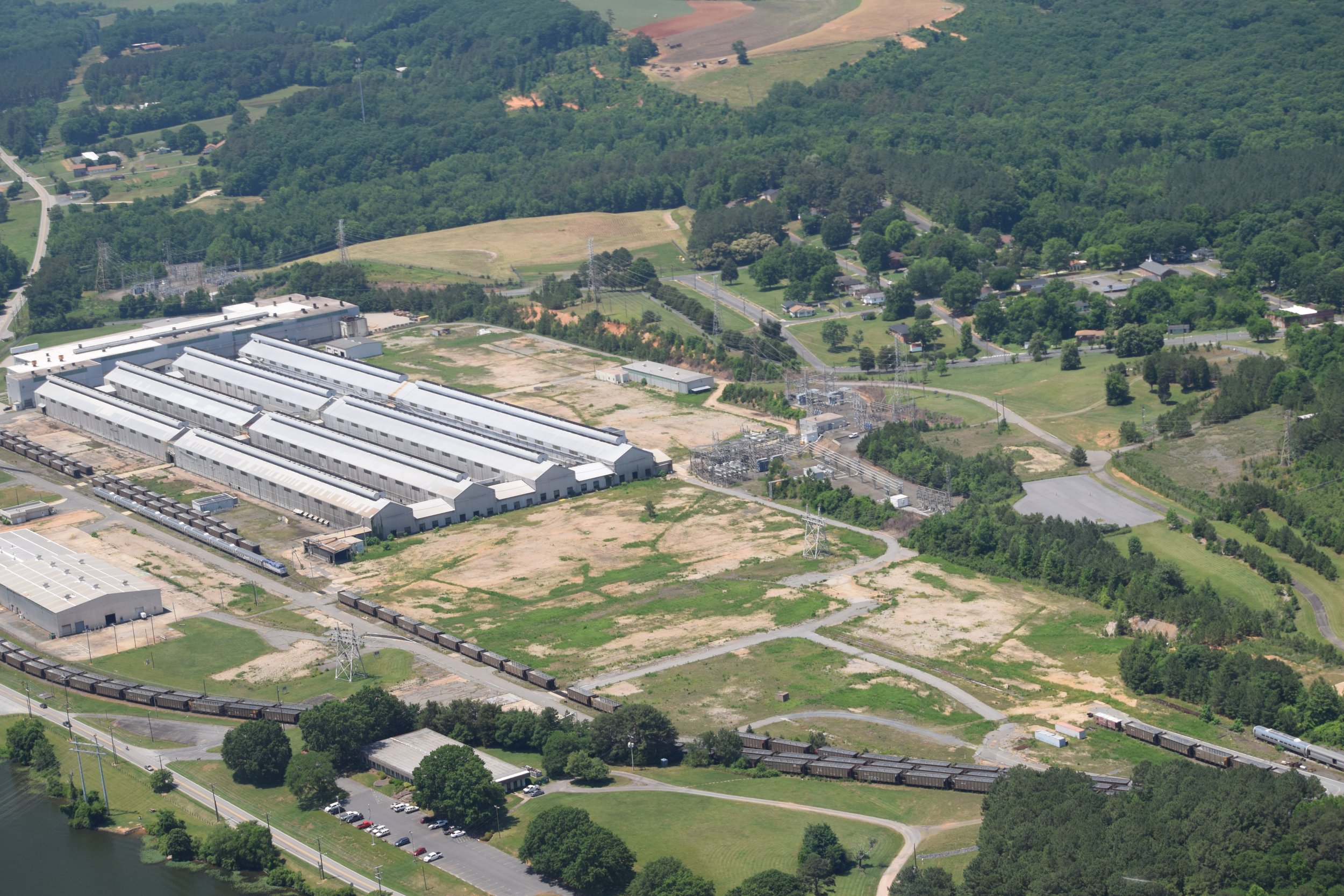By Edgar Miller, Riverkeeper
Yadkin Riverkeeper has learned Alcoa has received a permit from Stanly County to begin demolishing potentially contaminated smelter buildings at the Badin Business Park. Yadkin Riverkeeper Edgar Miller and the Concerned Citizens for West Badin expressed concern to the NC Department of Environmental Quality (DEQ) about the demolition proceeding under the facility’s expired stormwater permit and without a final remedy in place for the cleanup of hazardous waste disposed of at the site. In response to these concerns and others from the West Badin community about the impact on air and water quality, DEQ held a meeting to share their plans for limited oversight of the demolition.
At this time, there are no plans for DEQ to monitor for air quality concerns as that isn’t typically done during demolition projects, unless there are specific concerns about “fugitive emissions.” Alcoa’s demolition contractor has said they will use water to keep the dust emissions down, raising additional concerns about adding potentially contaminated water to a site that has already violated its stormwater permit more than 20 times in the past three years for various contaminants. Alcoa has pledged to contain any contaminated water on-site and that there will be no release of hazardous materials.
Concerns about the need to analyze the aluminum and steel from the smelter building for potential contamination after years of being exposed to the hazardous emissions for the smelting process were dismissed due to a regulatory loophole. Under current law, any steel or aluminum destined for recycling, along with “universal waste” (i.e., mercury switches, fluorescent light ballast potentially containing PCBs) found in the buildings can be recycled without analyzing the material for potential hazardous contaminants because it is legally defined as a “resource” and not a “waste” subject to hazardous waste management regulations.
However, YRK did learn that when Alcoa’s contractor begins breaking up and removing the concrete pads the buildings were built on those will have to be analyzed for toxic constituents before being sent offsite for disposal. Alcoa also will have to develop an erosion and sediment control plan once it begins disturbing dirt underneath the concrete pads. While this is somewhat reassuring, it will be up to Alcoa to “self-report” any findings of toxicity in the concrete and there will not be an opportunity for the public to provide input on the erosion and sediment control plan. Given Alcoa’s track record and the community’s longstanding mistrust of the company, these are hardly reassuring commitments.
Alcoa will still be required to meet the effluent limits in its existing, expired stormwater permit, which YRK has recommended be strengthened in the new, yet to be issued permit. Fortunately, the Duke Environmental Law and Policy Clinic, which represents YRK on this case, recently received funding to help support independent sampling at the site’s major stormwater outfalls, Badin Lake and Little Mountain Creek. YRK is assisting the clinic and Concerned Citizens of West Badin in doing that sampling and hopes to do independent “split samples” with DEQ in the near future.
While YRK would have preferred the state not allow the demolition until the new stormwater permit is in place and a final remedy prescribed for the hazardous waste remediation at the site, we will remain diligent to ensure the community and its water resources, including Badin Lake, Little Mountain Creek and the Yadkin River are not further degraded by pollution coming from this facility.

